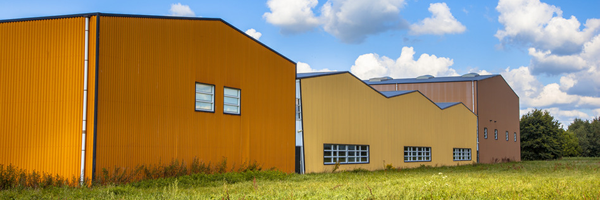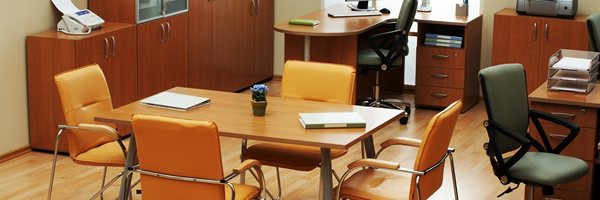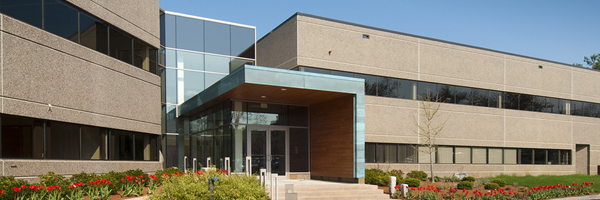Contents
Updated February 2023
Introduction
If you are considering investing in commercial property, it might be helpful to review what you need to know about being a commercial property landlord. This brief guide covers various aspects of your role as a landlord, including:
- becoming a commercial landlord;
- insurance;
- risks;
- unoccupied property insurance and;
- FAQs
Being a commercial landlord

Commercial property comes in a huge variety of shapes, sizes, uses and values.
In terms of its size, it might range from a large warehouse or factory with a footprint of many thousands of square feet, right down to a high street takeaway or corner shop. By the same token, of course, the value of commercial property might range from only hundreds of thousands to many millions of pounds.
Whatever the size or value of the unit or units owned, however, all landlords of commercial property have one goal in common – and that is to maximise the potential for rental income and to safeguard and maintain the property in such a state that it realises its full market value and capital appreciation in the event of any sale in the future.
Commercial property, in other words, is owned for clearly business reasons and in that regard is set apart from residential property you might buy to live in as your home.
As the owner of what is essentially a business asset, the landlord of commercial property has not only to fulfil the financial aims and objectives of the enterprise but also to keep fully up to date with legislation governing the health and safety of tenants or leaseholders, the particular requirements if other people are employed to help run the landlord’s business and a duty of care towards members of the public.
Since the collection of rent is central to the landlord’s business, the relationship with tenants and leaseholders is clearly very important. Apart from the relevant legislation, many of the most critical aspects of the relationship between tenant and landlord are contained in a written tenancy or lease agreement.
Insurance

Are you buying your commercial property with the help of a mortgage? In that case, any existing commercial or trading record you have may be taken into account when the lender decides on the interest rate you must pay on the loan. The location of the premises and the nature of the business to be conducted there are also likely to be determining factors.
You are also likely to be quoted a different rate if you are the owner-occupier of the commercial property– running a small office or a shop, for instance.
Whatever the form of tenure, any mortgage lender is likely to insist that there is sufficient building insurance on the property to cover at least the outstanding balance of any mortgage loan.
Commercial property insurance for landlords
Just as the mortgage lender, your insurer may also distinguish between commercial property that is occupied by the owner’s business and one that is leased or let to tenants.
The reason is twofold:
- a property that is let to tenants is itself being used for business purposes – the generation of rent; and
- when occupied by tenants, insurers typically consider the risks to be of a different order and nature than when it is occupied by the owner.
It is important, therefore, that any insurer is made aware of the use to which the commercial premises are put – as premises from which to run your own business, or as a buy to let proposition where you are relying upon income from rents.
Valuation is also an important aspect of commercial property insurance. The nature of that valuation, however, is something which may trip up the unwary property owner.
The principle behind it comes from imagining a worst case scenario in which your property is completely destroyed – following an event such as those described in the following section of this guide.
The insurance you arrange needs to put you in the same position as before that destructive incident occurred. In other words, your insurance needs to cover the cost of clearing the site on which the building is erected, engaging architects, engineers and lawyers to prepare designs and contracts for a replacement structure, and actually rebuilding the premises.
The costs of reconstruction are quite different to the current market value of the existing building and different again to the price at which you bought it – they are the actual rebuilding costs.
Clearly, these may change over time and it may be necessary to revise the total building sum insured to reflect these changes – possibly with reference to the construction costs index published bythe Royal Institute of Chartered Surveyors (RICS).
Risks

What are some of the risks against which you need to insure your commercial property? Some may be immediately apparent – taking the shape of physical threats to the building and its contents – whilst others may be less obvious and represent the kind of liabilities which you are taking on simply by the fact of becoming a landlord.
Building insurance
Just as with any other building, your commercial property is vulnerable to a wide range of natural and man-made threats, risks and perils, such as:
- fire, explosions and earthquakes;
- smoke damage;
- subsidence – a failure of the building’s foundations and a threat which may prove especially costly to rectify;
- flooding – some areas are more vulnerable than others and you might want to check the location of your commercial property with reference to the Environment Agency’s scalable map on parts of the country at risk of flooding from rivers or the sea;
- storm damage;
- impacts – from such objects as colliding vehicles, aircraft or falling trees and branches; and
- vandalism.
Property owner’s liability insurance
Also known as public liability, this reflects the duty of care you owe, as the owner of the commercial property to take all reasonable steps to ensure that members of the public suffer no injury or property damage as a result of connection with your property.
If it is alleged that you have in some way failed in this duty and a member of the public suffers an injury or has their property damaged, you run the risk of being faced with a substantial claim for compensation, so property owner’s liability insurance provides indemnity against such claims.
Employers’ liability insurance
If you employ anyone else to help run or work with you in the commercial property in which you have invested, the law (in all but a few rare exceptions) requires that you hold a minimum of £5 million employer’s liability insurance in the event of an employ sustaining an injury or contracting an illness or other medical condition as a result of their employment.
The requirement for such cover is a provision of the Employers’ Liability (Compulsory Insurance) Act 1969, as amended.
Unoccupied property insurance
There is one class of risks which probably deserve a section to themselves in a guide such as this – those special risks and perils faced by your commercial property if it left empty and unoccupied for more than a month or so.
An empty commercial property – especially one that looks as though it has been abandoned for any period of time – tens to act as a natural magnet to all kind of unwelcome attention. Vandals, squatter and fly-tippers spring to mind. One of the potentially most serious risks faced by empty commercial property in particular is arson.
In addition to the heightened risks from criminal activity, unoccupied buildings are also more vulnerable to otherwise relatively minor faults turning into major disasters. A dripping tap or a poor electrical connection, for example, might ultimately develop into full-blown, serious emergencies if the premises are not in use and there is no one on hand to spot the fault and raise the alarm in time for the necessary repairs and maintenance.
Criminal activity and undetected maintenance problems, therefore, represent just two sources of increased risk – over and above those risks typically faced by premises in more or less constant use.
Because of these increased risks, most insurers impose a limit of 45 to 60 days (the exact number varying from one insurer to another) for which the premises may be left unoccupied. Beyond this limit, normal cover is typically cut back and severely limited in its scope or may even be considered to have lapsed altogether.
If you are planning to vacate your commercial property for longer than a month or so – for refurbishing or refitting, for example, or because you are awaiting a new leaseholder to move in – you are likely to need specialist unoccupied property insurance in order to maintain the comprehensive cover to which you are generally accustomed.
Unoccupied property insurance is one of our specialities here at Cover4LetProperty, so you might want to discuss with us your needs for such cover as and when the need arises.
FAQs

Do I need commercial property insurance?
Apart from any building insurance which might be required by your mortgage lender, there is no strict compulsion on arranging insurance for your commercial property.
When weighing up the pros and cons of most insurance, though, the decision of whether or not to buy it might depend on how much you stand to lose if you do not have the cover.
In the case of commercial property, that loss may be very substantial indeed.
Do I need to inform my insurer if my commercial premises are let?
The simple answer is yes.
Insurers base their cover of your property according to an assessment of risks and if tenants are occupying the building those risks may be of a different nature and order than when it is your business occupying the property.
Do I need property owner’s liability insurance?
There is no legal requirement for you to hold such indemnity, but if you do not, and a tenant, leaseholder or one of their visitors is injured or has their property damaged whilst on your property, you may be faced with a substantial claim for damages by way of compensation.
Given the potential sums involved in such claims, it is usual for landlord liability insurance to offer cover of at least £2 million – with sums up to £5 million being commonplace.
Do I need employers’ liability insurance?
Here, the answer is almost certain to be yes, if you employ anyone else in connection with your commercial buy to let business. The law requires you to have a minimum £5 million of cover.
Do I need unoccupied property insurance?
If your commercial property is going to be empty and unoccupied for longer than a month or so, it makes great sense to arrange unoccupied property insurance. Failure to do so means any existing buildings insurance on your property may become severely restricted – or may even lapse altogether.
Legislation

When you let your commercial premises to tenants or grant a longer-term lease, you have a number of responsibilities towards those tenants.
Your obligations and responsibilities may be laid down in legislation, or form part of the lease agreement between you and your tenants. In the latter case, it is essential, therefore, that both you and your tenants understand your respective responsibilities.
The overlap between anything the law may require and those aspects covered in the lease agreement provides fertile ground for misunderstandings and the failure by one party or the other to put in place the necessary safeguards.
At the end of the day, however, legislation imposes the greater burden on the owner of the commercial property to ensure the overall safety of tenants and leaseholders.
Most of the legislation is designed to safeguard the health and safety of your tenants.
Although the lease may seem to shift many of the responsibilities onto the leaseholder, for example, the landlord is ultimately responsible for:
- the safety of gas supplies and any appliances the landlord supplies, with annual inspections made by a registered Gas Safe engineer;
- the safety of electrical supplies and any electrical appliances supplied by the landlord, with inspections made by a suitably qualified engineer as and when this may be appropriate;
- responsibility for fire safety may be delegated to the tenant in the specific terms of the lease agreement, but if in any doubt, the landlord may be assumed to retain responsibility;
- responsibility for the management of any asbestos used in the construction of the premises rests with the landlord and there are heavy penalties – fines of up to £20,000 for individual landlords or unlimited fines for companies, plus up to two years’ imprisonment; and
- fixtures and fittings that have been installed by the landlord need to be securely and safely made and maintained.
Maintenance
As the landlord, you have a general responsibility for the maintenance and overall upkeep of the structure and fabric of the property.
Some of these responsibilities – particularly those relating to internal areas – may be shared between you and your leaseholder. There may also be occasions when you charge the leaseholder a fee for certain cleaning and maintenance services you provide.
Summary
Investment in commercial property might represent a sound and lucrative business opportunity.
Whether you intend to use the building from which to run your own business or to act as a landlord in letting it to tenants, insurance of the premises is likely to take a priority – and none the more so if you are letting the property to tenants or leaseholders.
There is a wide range of risks faced by any commercial property and these may be thrown into sharper relief once you assume the role of landlord.
Those risks increase in their nature and scope whenever you may need to leave the premises empty and unoccupied for longer than a month or so.







